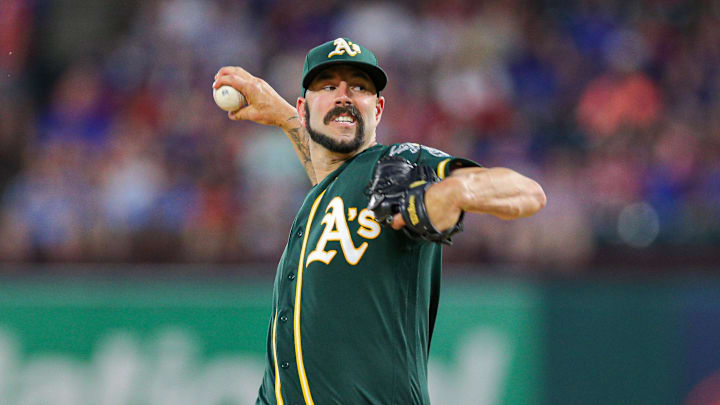Roberto Osuna
Major League Baseball likes to project a squeaky clean, America's Pastime, take your kids to the ballpark kind of image, but sometimes players don't get the memo. Naming a whole passel players who have struggled to be decent human beings, usually and especially toward women, doesn't do anyone any good, so we won't do it here — it's likely that a few examples of good baseball players who might not be good people have popped into your head already anyway. Certainly, neither does employing them after the league has taken disciplinary action against them for domestic violence, but the Astros didn't seem to care much about that when they acquired Roberto Osuna.
Osuna was picked up from the Blue Jays while serving a 75-game suspension for domestic violence against his former partner. Actual charges by law enforcement in Toronto were later dropped for some strange, seemingly purely procedural reasons, and the Astros decided that he'd be a good addition to their team anyway.
It seems that not even baseball is exempt from an argument that sounds a lot like separating the art from the artist, because Osuna stayed with the team for two years before he refused Tommy John surgery and was outrighted by the team in 2020. Putting Osuna on the roster was a misguided thing to do right from the start; not only did it end badly for all parties, it projected a noxious message from Astros management about the team's attitude toward women.
Jesús Alou
Here's a refreshing change of pace: in the case of Jesús Alou, distaste from Houston fans has less to do with his personal life and more to do with his ability on the field. In 1968, Alou, the youngest of the Alou brothers, was selected to be part of the very first Montreal Expos team, but was promptly traded to the newly renamed Houston Astros (they were previously the Houston Colt .45s) for two-time All-Star and two-time recipient of MVP votes Rusty Staub.
Staub went on to spend three years in Montreal, all of which were All-Star years, and receive MVP votes twice again. He became beloved in Canada; he was inducted into the Canadian Baseball Hall of Fame in 2012, had his number retired, and hit for an OBP of .402, which is an Expos record. Meanwhile, Alou languished in Houston for seven years (non-consecutively — he retired as an Astro in 1979 after bouncing around the league and spending some time in Mexican leagues), never once an All-Star, never mind receiving MVP votes. He was a pretty good contact hitter (.282 BA), but hardly walked (.313 OBP) and couldn't hit for power (.366 with 32 career home runs).
Malice toward Alou really boils down to the outcome of a mismatched trade — misguided but not altogether Alou's fault. If the player Houston lost to Montreal had been less exceptional than Rusty Staub, Alou probably could've been forgotten altogether instead of being remember poorly.
